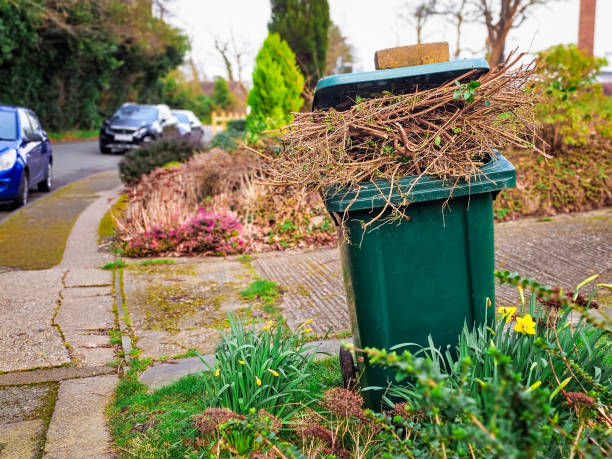Best Practices for Yard Waste Removal: Maintaining an Eco-Friendly Landscape
- localseodept2
- Mar 30, 2024
- 3 min read

It takes more than just aesthetics to keep a well-kept yard; it also requires environmental responsibility. It is imperative that we, as homeowners, follow the right procedures when it comes to getting rid of yard garbage to maintain both a clean and sustainable outside area. We'll explore the finest strategies for getting rid of yard garbage in this extensive guide, with an emphasis on eco-friendly and productive techniques, including considerations for junk removal service in Wagener, SC.
1. Recognizing Yard Waste
Before going into removal techniques, it's critical to comprehend what yard debris is. Grass clippings, leaves, branches, brush, and other organic wastes produced during regular yard upkeep are commonly referred to as yard waste. Yard garbage should be distinguished from other waste categories, such as building debris or residential rubbish, as separate disposal techniques may be required.
2. The 3 Rs: Cut, Reuse, Recycle
The maxim "reduce, reuse, recycle" also holds when it comes to handling yard debris. Reducing the amount of yard waste produced in the first place is one of the finest techniques. Take into consideration applying methods like "grasscycling," in which after mowing the lawn, grass clippings are left there to serve as a natural fertilizer. Additionally, think about mulching leaves with a mower and using them as organic materials in compost piles or flower beds rather than bagging them.
3. The process of composting
One very efficient way to manage organic yard waste and improve soil quality is by composting. In addition to keeping waste out of landfills, composting leaves, grass clippings, and other organic debris produces nutrient-rich compost that improves soil health. To guarantee ideal decomposition and nutrient retention, get a compost container or pile for your yard and adhere to recommended composting procedures.
4. Programs for Curbside Collection:
For efficient disposal of organic waste, homeowners can dispose of their yard trash through curbside pickup services offered by many towns. Typically, yard waste is placed in specified bags or containers for pickup on prearranged days as part of these programs. To guarantee compliance, it's critical that you are aware of your local regulations about permissible items, container requirements, and pickup times.
5. Chipping and Mulching:
Consider chipping or mulching larger yard waste materials, such branches and brush, to make them more useful. Mulch can be applied to garden beds and the areas surrounding trees to improve soil structure, prevent weed growth, and hold onto soil moisture. In order to reduce the requirement for virgin resources, chipped wood can also be used as biomass for energy generation or as landscaping material.
6. Yard Waste Disposal Systems:
Residents can dispose of or recycle their organic waste at authorized yard waste facilities found in many municipalities. These facilities frequently take in a variety of items, such as branches, grass clippings, leaves, and brush. Make sure you meet any requirements, such sorting materials or paying disposal fees, before visiting a yard waste center.
7. Expert Services:
Hiring expert landscapers or arborists for yard garbage disposal may be necessary in some circumstances, especially for large-scale landscaping jobs or tree removals. These experts can handle and dispose of yard waste safely and effectively, guaranteeing that it complies with all local laws and environmental standards thanks to their equipment and knowledge.
8. Conscientious Discardment:
It is imperative to give proper waste management procedures priority, regardless of the disposal method used. Yard garbage should not be illegally dumped or burned because these activities can hurt the quality of the air and soil and present a fire risk. Instead, choose ecologically friendly disposal techniques that limit harm to the environment and encourage sustainability.
9. Teaching Others:
Providing instruction to individuals in your community regarding the significance of appropriate disposal methods is a component of efficient yard waste management. Talk to your neighbors, friends, and family about composting, recycling, and other environmentally beneficial practices. You may help create an environment-stewardship culture in your community by promoting awareness and group action.
10. Keep Up with the News:
Lastly, keep up to date on neighborhood yard waste removal best practices, resources, and rules. To assist sustainable waste management practices, municipalities may introduce new programs or revise existing ones regularly. You can make sure that you are managing yard waste in an environmentally responsible and effective manner by keeping yourself informed.
To sum up
A combination of lowering waste creation, using environmentally friendly disposal techniques, and encouraging community involvement is required for effective yard waste management. Homeowners may minimize their ecological footprint and preserve a clean and healthy outside environment by putting these best practices into effect. Recall that every little bit helps to build a more sustainable future for future generations.




Comments